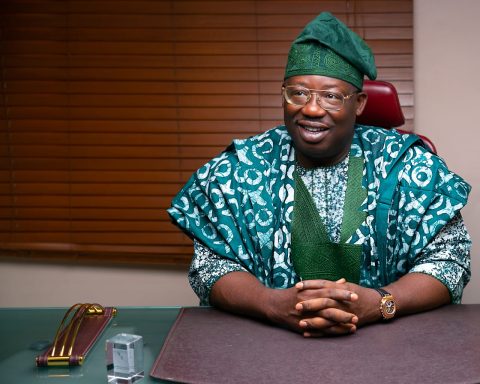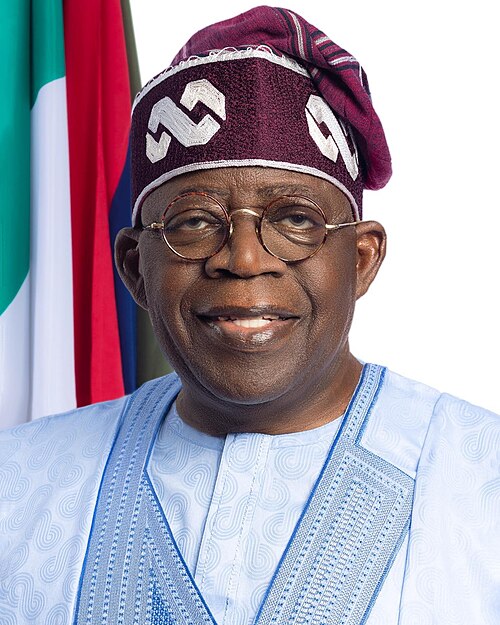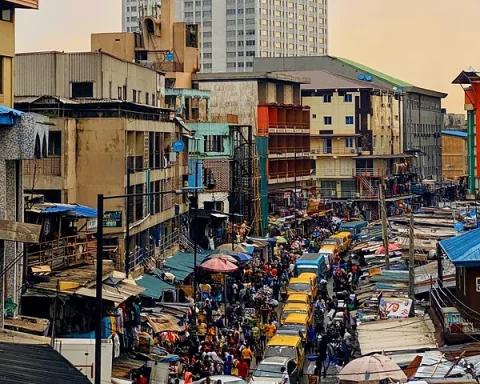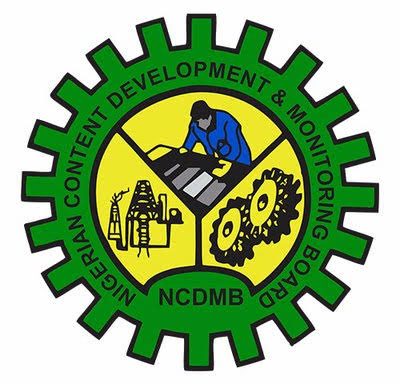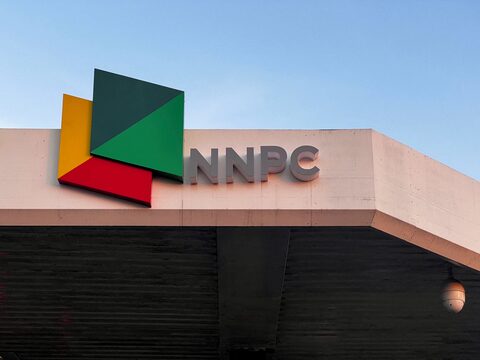By Dr Muda Yusuf
Nigeria’s economic journey over the past 65 years has been one of profound transformation — shaped by cycles of boom and bust, far-reaching reforms, recurring crises, and enduring struggles with diversification. As the nation marks 65 years of independence, reflecting on this trajectory is essential to chart a more sustainable, competitive, and inclusive path for the future.
Join our WhatsApp ChannelFoundations and Lessons from the Early Years
At independence, Nigeria’s economy was largely agrarian, productive, and inclusive. Agriculture contributed an estimated 60 percent of gross Domestic Product [GDP] and employed the majority of the country’s workforce. The export economy was anchored on cash crops — cocoa, groundnuts, palm oil, and rubber — and citizens were actively engaged in the entire value chain. Governance was decentralized, with regions controlling resources and revenues, which promoted balanced development, accountability, and healthy competition.
This early experience offers an enduring lesson: decentralization and local ownership of resources drive innovation and inclusive growth. Restoring a more fiscally federal structure could once again foster subnational competitiveness, stimulate innovation, and encourage states and regions to take greater ownership of economic outcomes.
The Oil Boom and Structural Distortions
The discovery and commercialization of crude oil in the late 1960s radically altered Nigeria’s economic and political trajectory. By the 1970s, oil had become the dominant source of public revenue and foreign exchange. The oil boom delivered significant wealth but also created structural vulnerabilities. Agriculture was neglected, leading to food import dependence. Corruption and rent-seeking behavior escalated, while import-substitution industrialization became overly dependent on imported inputs, leaving domestic value chains underdeveloped.
This dependence made the economy acutely vulnerable to oil price shocks — a weakness that continues to destabilize public finances to this day. The key lesson is clear: resource wealth must be managed prudently and countercyclically through well-governed stabilization funds and sovereign wealth investments, while industrialization must be firmly rooted in domestic value chains rather than external dependence.
Adjustment, Liberalization, and Social Costs
The oil price collapse of the early 1980s triggered fiscal and balance-of-payments crises that forced Nigeria to adopt the Structural Adjustment Program (SAP) in 1986. This shift introduced currency devaluation, trade liberalization, financial sector reform, and privatization of state-owned enterprises.
While SAP nudged Nigeria toward a market economy, it also came with significant social costs — rising poverty, inflation, and industrial underutilization. Import dependence worsened in the absence of robust domestic production. The lesson here is that reforms must be carefully sequenced and complemented with strong institutional frameworks and social protection mechanisms to avoid deepening poverty and inequality.
Recurring Recessions and Structural Weakness
Nigeria has experienced eight recessions since independence — in 1967, 1975, 1978, 1981–1983, 1993, 2016, and 2020 — largely triggered by oil price shocks, fiscal mismanagement, or global crises. Each downturn revealed the same structural fragilities: heavy reliance on oil revenues, weak non-oil exports, and excessive import dependence.
Building resilience will require export diversification, fiscal discipline, and the creation of credible stabilization mechanisms to ensure stability of government spending during periods of revenue volatility.
Oil and Gas Governance: From Crisis to Opportunity
For decades, Nigeria’s oil and gas sector was plagued by poor governance, corruption, and rent-seeking, leading to the collapse of state-owned refineries, heavy dependence on imported petroleum products, and widespread crude oil theft. This mismanagement undermined fiscal stability and reduced the sector’s developmental impact.
Cheerfully, recent developments — notably the Dangote Refinery and petrochemical complex and ongoing industry reforms — signal a potential turnaround. These efforts, if sustained, could restore value to the sector, enhance energy security, and catalyze new downstream and petrochemical investments.
Security and Productivity
The last two decades have seen a deterioration in national security — insurgency, banditry, kidnapping, ethnic and religious conflicts, farmers herders clashes and armed robbery — which disrupted agriculture, manufacturing, and mining, and eroded investor confidence. Restoring security is therefore not just a social imperative but an economic one, necessary to rebuild productivity and unlock investment in the real economy.
Emerging Bright Spots
Despite persistent challenges, Nigeria has achieved notable successes. The ICT and telecommunications sector has grown from fewer than 20,000 telephone lines in 1960 to over 165 million active lines today, transforming commerce, banking, and governance. Financial services have deepened, fintech has flourished, and capital markets have expanded. Nollywood and Afrobeats have turned Nigeria into a global cultural powerhouse. Broadcasting has grown from one TV station and a few government-owned radio stations at independence to more than 740 broadcast stations today, while e-commerce is reshaping consumer markets.
These sectors demonstrate Nigeria’s potential for non-oil-led growth. Unlocking further progress will require strengthening infrastructure, power supply, broadband penetration, and regulatory consistency to attract and sustain private sector investment.
Macroeconomic and Fiscal Challenges
Persistent macroeconomic instability continues to weigh on growth. The naira’s dramatic depreciation — from being stronger than the U.S. dollar in the 1970s to ₦1,600/$ in 2024 — has eroded purchasing power, raised production costs, and discouraged investment. Rising public debt and unsustainable debt-service-to-revenue ratios have constrained the fiscal space, limiting governments’ capacity to fund critical infrastructures.
Policy priorities must focus on restoring currency stability through credible monetary policy, expanding foreign exchange supply by growing non-oil exports, improving public spending efficiency, plugging fiscal leakages, and raising non-oil revenue without stifling private enterprise. The good news is that the economy is beginning to experience remarkable degree of stability over the last one year.
Demographics, Infrastructure, and Future Growth
Nigeria’s population of an estimated 230 million is both a significant opportunity and a daunting challenge. Infrastructure — roads, power, housing, education, and healthcare — remains grossly inadequate, undermining productivity and competitiveness. Aggressive infrastructure investment, leveraging public-private partnerships and innovative financing models, is no longer optional but an urgent necessity.
Reform Agenda and the Way Forward
In the last two years, the government has implemented bold reforms, including exchange rate unification, fuel subsidy removal, and tax policy adjustments. These measures have imposed short-term pain — high inflation and reduced household purchasing power — but early signs of macroeconomic stabilization are emerging.
To sustain reform momentum, these measures must be complemented by targeted social protection programs — cash transfers, food security interventions, and job-creation initiatives — to shield vulnerable households and maintain public support.
Strategic Priorities for the Next Decade
Looking ahead, Nigeria must focus on:
- Deepening economic diversification: Scaling up value addition in agriculture, manufacturing, and solid minerals.
- Strengthening governance and institutions: Enhancing transparency, reducing the cost of governance, and improving fiscal responsibility and management.
- Investing in human capital: Prioritizing education, health, and vocational training to harness the demographic dividend.
- Accelerating infrastructure development: Power, transport, and broadband must be prioritized through PPPs and innovative finance.
- Ensuring inclusive growth: Embedding poverty reduction, job creation, and social protection in fiscal and monetary policy
Conclusion
Nigeria’s economic history at 65 is one of resilience, missed opportunities, and enormous untapped potential. The current reform agenda presents a rare opportunity to reset the economy on a path of stability, competitiveness, and shared prosperity. Seizing this moment will require consistent policies, institutional strengthening, and a deliberate effort to ensure that economic growth translates into improved living standards for citizens.
Dr Yusuf is the Director/CEO, Centre for the Promotion of Private Enterprise (CPPE




